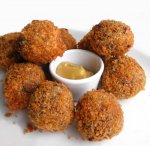Locust beans
- Thread starter Pamella
- Start date
-
Christian Chat is a moderated online Christian community allowing Christians around the world to fellowship with each other in real time chat via webcam, voice, and text, with the Christian Chat app. You can also start or participate in a Bible-based discussion here in the Christian Chat Forums, where members can also share with each other their own videos, pictures, or favorite Christian music.
If you are a Christian and need encouragement and fellowship, we're here for you! If you are not a Christian but interested in knowing more about Jesus our Lord, you're also welcome! Want to know what the Bible says, and how you can apply it to your life? Join us!
To make new Christian friends now around the world, click here to join Christian Chat.
I found out recently that John the Baptist was more likely eating locust beans and honey. Not locusts. I looked up locust beans on the internet. There's some grown in Africa that are different from those grown in Isreal. Which are carob pods. The yummy insects are not always available.
The locust bean thing is something some Vegetarians claim he ate. I don't know whether he ate them or real locusts. The idea turns my stomach though. It would take more than Honey to induce me to eat them.
None of them were that bad........in fact, kinda tasty
I found out recently that John the Baptist was more likely eating locust beans and honey. Not locusts. I looked up locust beans on the internet. There's some grown in Africa that are different from those grown in Isreal. Which are carob pods. The yummy insects are not always available.
1 Samuel 30:12-13 part of a cake of pressed figs and two cakes of raisins. He ate and was revived, for he had not eaten any food or drunk any water for three days and three nights. David asked him, “Who do you belong to? Where do you come from?” He said, “I am an Egyptian, the slave of an Amalekite. My master
1 Samuel 25:18 Abigail acted quickly. She took two hundred loaves of bread, two skins of wine, five dressed sheep, five seahs of roasted grain, a hundred cakes of raisins and two hundred cakes of pressed figs, and loaded them on donkeys.

Fig Newton Cookie. Getty Images
2 Samuel 6:19 Then he gave a loaf of bread, a cake of dates and a cake of raisins to each person in the whole crowd of Israelites, both men and women. And all the people went to their homes.
Hosea 3:1 [ Hosea’s Reconciliation With His Wife ] The Lord said to me, “Go, show your love to your wife again, though she is loved by another man and is an adulteress. Love her as the Lord loves the Israelites, though they turn to other gods and love the sacred raisin cakes.”
C
I found out recently that John the Baptist was more likely eating locust beans and honey. Not locusts. I looked up locust beans on the internet. There's some grown in Africa that are different from those grown in Isreal. Which are carob pods. The yummy insects are not always available.
Matthew 3:4 John's clothes were made of camel's hair, and he had a leather belt around his waist. His food was locusts and wild honey.
So he could have eaten insects. However, others claim that the “locusts” refer to the pods and beans of the locust tree. However, these trees aren’t widespread in the region and there is a history of Middle Eastern and African people being creating with their locust cookery, so it is more likely that he did eat the locusts in one form or another.
It wouldnt be an odd thing for them to eat
Lev 11:22 Even these of them ye may eat; the locust after his kind, and the bald locust after his kind, and the beetle after his kind, and the grasshopper after his kind.
Like we might think, ew, gross, its gotta be a bean, but in their law these were included as edibles for them
Lev 11:22 Even these of them ye may eat; the locust after his kind, and the bald locust after his kind, and the beetle after his kind, and the grasshopper after his kind.
Like we might think, ew, gross, its gotta be a bean, but in their law these were included as edibles for them
D
I found out recently that John the Baptist was more likely eating locust beans and honey. Not locusts. I looked up locust beans on the internet. There's some grown in Africa that are different from those grown in Isreal. Which are carob pods. The yummy insects are not always available.
After all, there are no rabbits in the Bible. It's just a word translators guessed at unaware that geography was that different. (There are rabbits now in that part of the Middle East, but they were imported centuries later from the same place every other continent got them from -- Great Britain.)
If someone is trying to convince me two words are alike in a foreign language simply because they're alike in English, I'm a skeptic.
Mat_3:4 And the same John had his raiment of camel's hair, and a leathern girdle about his loins; and his meat was locusts and wild honey.
Mar_1:6 And John was clothed with camel's hair, and with a girdle of a skin about his loins; and he did eat locusts and wild honey;
Mar_1:6 And John was clothed with camel's hair, and with a girdle of a skin about his loins; and he did eat locusts and wild honey;
ἀκρίς, ίδος, ἡ. locust, an insect similar to a grasshopper, often consumed as food
T
Is a name of an insect in Ancient Hebrew so similar to a name of a bean in Ancient Hebrew? I'm thinking what are the chances that a language that old would use the same words we use in English?
After all, there are no rabbits in the Bible. It's just a word translators guessed at unaware that geography was that different. (There are rabbits now in that part of the Middle East, but they were imported centuries later from the same place every other continent got them from -- Great Britain.)
If someone is trying to convince me two words are alike in a foreign language simply because they're alike in English, I'm a skeptic.
After all, there are no rabbits in the Bible. It's just a word translators guessed at unaware that geography was that different. (There are rabbits now in that part of the Middle East, but they were imported centuries later from the same place every other continent got them from -- Great Britain.)
If someone is trying to convince me two words are alike in a foreign language simply because they're alike in English, I'm a skeptic.

The honey locust pods are what are edible, they are also used for making artificial chocolate, and they are fed to livestock, primarily to pigs. The beans are not eaten to the best of my knowledge.
The tree is called an algarobo here in Spain, and the fruit of it is the algaroba.
You may be interested in knowing that some insects are considered clean to eat, and I believe the locust is one of them.
The tree is called an algarobo here in Spain, and the fruit of it is the algaroba.
You may be interested in knowing that some insects are considered clean to eat, and I believe the locust is one of them.
I found out recently that John the Baptist was more likely eating locust beans and honey. Not locusts. I looked up locust beans on the internet. There's some grown in Africa that are different from those grown in Isreal. Which are carob pods. The yummy insects are not always available.
C
The locust bean thing is something some Vegetarians claim he ate. I don't know whether he ate them or real locusts. The idea turns my stomach though. It would take more than Honey to induce me to eat them.

′Locusts are the tastiest insects′ | Environment | DW.COM | 17.05.2014
C
All my life I have been told a vegetarian will not eat anything with eyes.............What kind of vegetarians are there? Forgive the wanter off OP.
Btw do beans grow in the desert? I think he just ate locusts.
As far as I know, locusts are considered clean to eat in the Bible..........so, yeah, you are probably right on the money.
Some eat fish, but those are not the real ones. Vegetarian is no meat at all. Veganists don't eat cheese or eggs either. I got set free from that nonsense luckily.
Btw do beans grow in the desert? I think he just ate locusts.
Btw do beans grow in the desert? I think he just ate locusts.
D
Some eat fish, but those are not the real ones. Vegetarian is no meat at all. Veganists don't eat cheese or eggs either. I got set free from that nonsense luckily.
Btw do beans grow in the desert? I think he just ate locusts.
Btw do beans grow in the desert? I think he just ate locusts.
